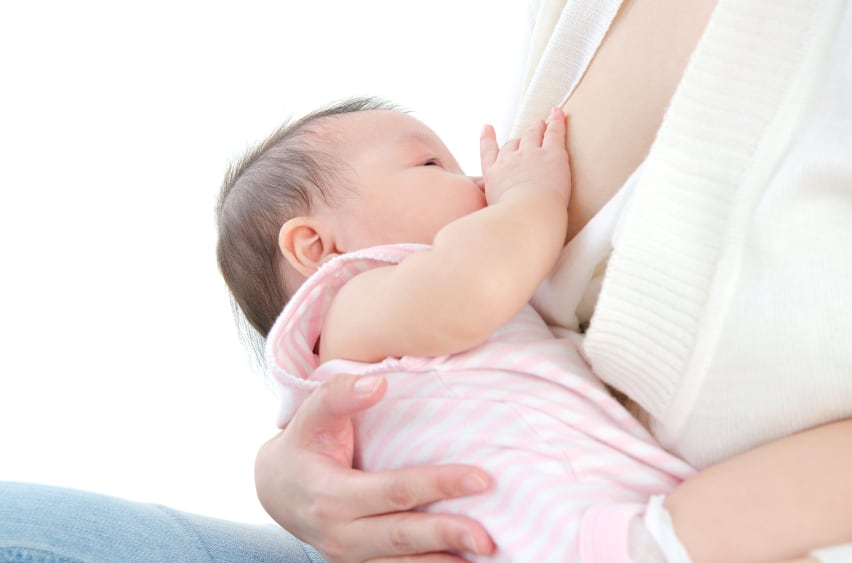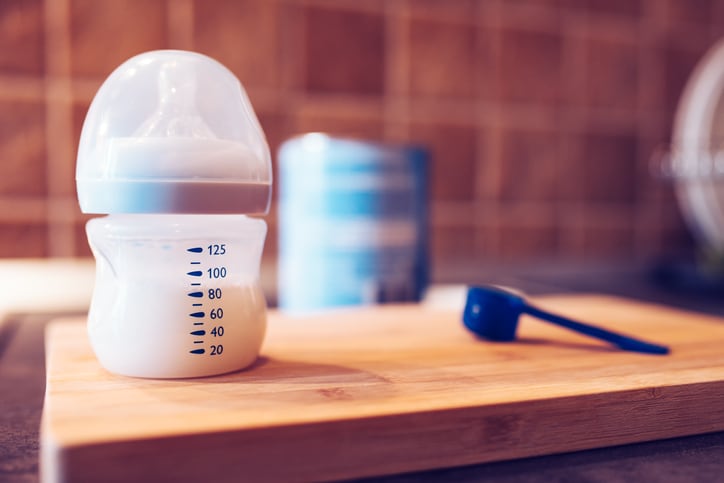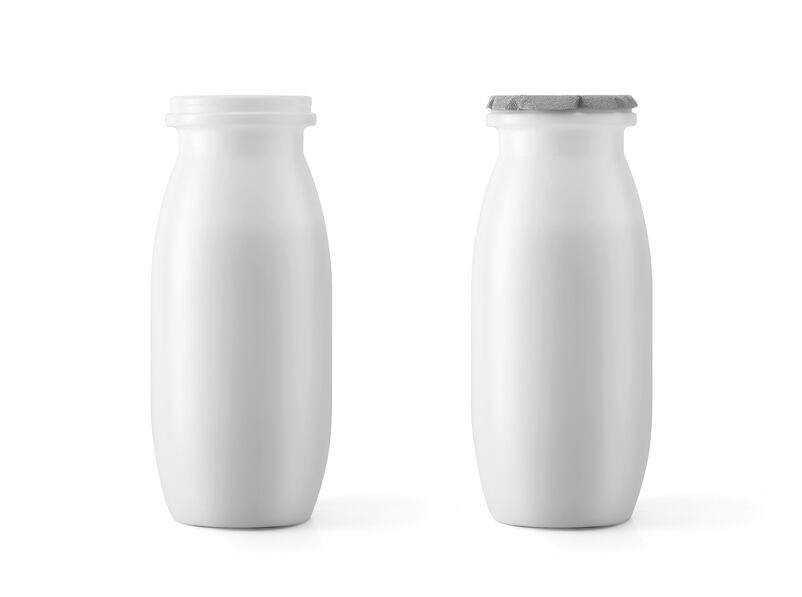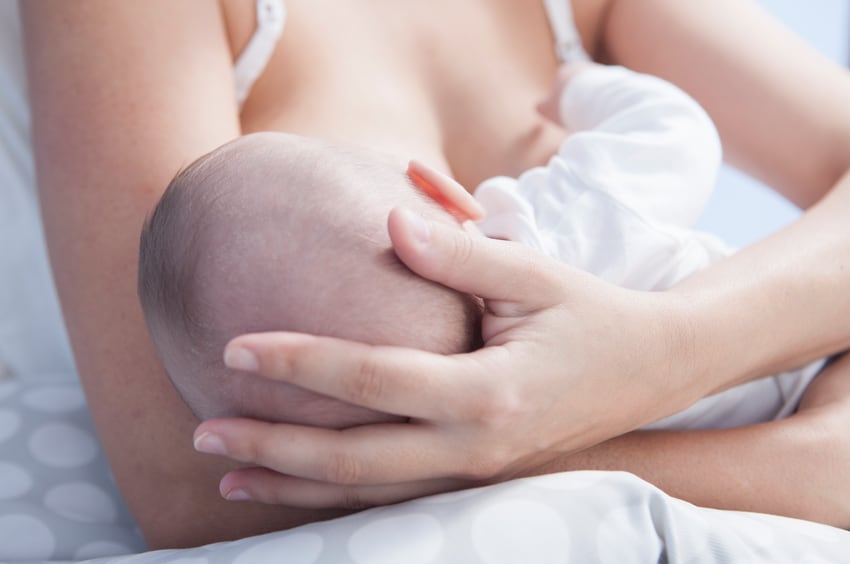A longitudinal cohort study led by Dr. Carolina de Weerth from Radboud University Medical Center in the Netherlands, has found associations between post-natal stress and the milk microbiota in healthy breastfeeding women.
Although factors such as gestational age, geographic location, antibiotic usage, or maternal diet, are known to influence the composition of milk microbiota, maternal psychosocial distress had not been addressed as a potential factor, which may influence the milk bacterial composition, according to the researchers. This is the first study to examine the potential association between milk microbiota composition and maternal psychosocial distress.
This study investigates associations between postnatal psychosocial distress and milk microbiota changes across the first three months postpartum in healthy breastfeeding women after full term pregnancies.
The report, published in Frontiers in Microbiology, points out that human milk contains many bioactive components, including bacteria, which is transferred to the developing infant through breastfeeding. Milk bacteria appear to originate from the maternal gut and it is already known that stress can alter the gut microbiota.
The researchers therefore wanted to explore whether maternal postnatal psychosocial distress was linked to alterations in the abundances of specific bacteria and to milk microbial diversity.
Findings
The researchers collected breast milk samples from 51 healthy breastfeeding mothers at 2, 6, and 12 weeks postpartum as well as asking them to filled in mood questionnaires on experienced stress, anxiety, and depressive symptoms at 6 weeks postpartum.
A metataxonomic approach (16S rRNA gene sequencing using Illumina MiSeq technology) was used to assess bacterial abundances and diversity. For the group as a whole, an increase in diversity of the milk bacterial community was observed during the first 3 months of breastfeeding (Shannon index).
The researcher note: "This general increase in diversity appears to be explained by an increase of Lactobacillus and other minor genera, together with a decrease in Staphylococcus."
With respect to psychological distress and milk microbial composition, no significant differences in the relative abundance of major bacterial genera were detected between women with high and low psychosocial distress. However, progressive and distinct changes in the content of Firmicutes, Proteobacteria, and Bacteroidetes at the phylum level and Acinetobacter, Flavobacterium, and Lactobacillus at the genera level were observed in milk samples of women with low psychosocial distress.
With respect to milk microbial diversity, high maternal psychosocial distress was related to significantly lower bacterial diversity in milk at 3 months post-delivery.
Altogether, these findings show that psychosocial distress is related to specific changes in the relative abundance of milk bacteria and to lower milk bacterial diversity.
In contrast, when scientists explored anxiety, stress, and depressive symptoms separately, they failed to find correlations with milk bacterial profiles.
The authors hypothesized that psychosocial distress could affect the microbial composition in milk via direct and indirect mechanisms. One way might consist of the altered maternal gastrointestinal microbiota secondary to psychosocial distress being transferred to breast milk via the entero-mammary pathway. A second possibility is that maternal psychosocial distress may affect milk’s nutrient content, which, in turn, may have an impact on milk microbiota.
As breast milk is considered a relevant source of commensal bacteria and other bioactive compounds for newborns, the researchers suggest it is worth exploring whether these findings might have an impact on infant health outcomes.
Discussing reasons for the link between stress and milk microbial composition, the reserachers point out that there may be two axes in play: the microbiota-gut-brain axis and the hypothalamic-pituitary-adrenal (HPA) axis.
The microbiota-gut-brain axis is a bidirectional signaling pathway between the gut microbiota and the central nervous system, including several humoral, immune and neural routes (Farzi et al., 2018; Dinan and Cryan, 2019).
The HPA axis, the stress control system, is a complex network of hormonal interactions between three endocrine glands: the hypothalamus, the pituitary gland, and the adrenal glands (Ulrich-Lai and Herman, 2009). The HPA-axis has been found to be highly active in women with distress leading to elevated levels of the hormone cortisol (Nierop et al., 2006; Taylor et al., 2009; Garcia-Leal et al., 2017).
The team also points out that cortisol has been shown to directly influence the maternal gut microbiota diversity by altering bile acid production, acidity of the gut secretions, and permeability of the gut (Li et al., 2013; Vanuytsel et al., 2014; Wang and Kasper, 2014; Deloose and Tack, 2016).
The rapidly evolving universe of probiotics, prebiotics and the microbiome will be discussed in-depth at the upcoming Probiota 2020 in Dublin on February 10-12.
From microbiome advances, to start-up game changers, market stats, crucial clinical science and regulatory knowledge, this is a congressional must-have.
Will you be joining your peers in one of Europe’s greatest cities?
Future studies
The authors note that to further clarify the relation and underlying mechanisms between psychosocial distress and milk microbiota, future studies may consider examining the gut and milk microbiota of women with a clinical psychopathological status.
The report states that it would also be useful to extend the study to a larger population in order to improve the power to detect potential differences between women with high and low psychosocial distress, and to draw definitive conclusions regarding the changes registered in the milk microbial composition of this study.
Source: Frontiers in Microbiology
Browne PD, Aparicio M, Alba C, et al.
"Human milk microbiome and maternal postnatal psychosocial distress"
doi: 10.3389/fmicb.2019.02333.





